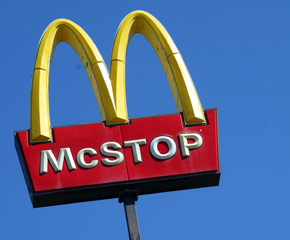The moratorium which was passed was intended to fight obesity in low-income communities of America’s second-largest city where healthy food is hard to find.
The move is trend-setting California’s latest salvo in an expanding war on the fast-food industry, which is bracing for copycat manoeuvres around the United States that could threaten growth.
But residents are sceptical that such laws will have much impact in Los Angeles’ low-income and minority neighbourhoods, which are already blanketed with cheap and easy-to-find meals at chains such as McDonald’s, Kentucky Fried Chicken, Taco Bell and Domino’s Pizza.
Eye-popping calorie counts and the often unhealthy ingredients used in fast food have made the industry a favourite whipping boy for anti-obesity advocates and lawmakers.
“This isn’t the calm before the storm, this is still the storm,” said California Restaurant Association spokesman Daniel Conway, whose group represents most major restaurant chains.
“A target on our backs”
“A target has been put on our backs. There seems to be some people out there who think that if only we can regulate the restaurant industry, we can cure obesity,” said Conway, who added that his clients were bracing for a flood of similar legislation after the election season.
Los Angeles City Councilwoman Jan Perry, sponsor of the moratorium, said she didn’t want to eliminate fast-food chains in her 82-sq-km district, which is home to more than half a million people and 400 fast-food restaurants.
Instead, she said, the law was intended to give officials time to attract healthy alternatives and grocery stores, which are few and far between in poorer, urban neighbourhoods.
Experts say supermarket chains are reluctant to open stores in such neighbourhoods out of security and theft concerns – a worry that Perry calls outdated and misplaced.
Her move followed a report showing that about 30 percent of children living in the district, which has the city’s highest concentration of fast-food restaurants, are obese compared with some 21 percent in the rest of Los Angeles.
California this year became the first state to ban artery-clogging trans fats in restaurants and in 2003 it banned the sale of soft drinks in middle and elementary schools.
State lawmakers have also backed a bill that would make California the first state to require chain restaurants with 20 or more outlets to list calorie counts on menus.

